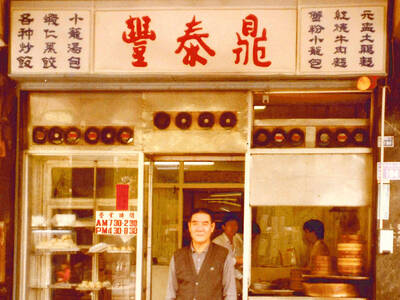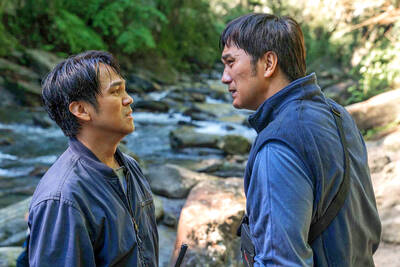Indian scientists have carried out vasectomies on scores of cross-bred lions, the results of experiments to create new sub-species, to let them die out in a "controlled
extinction".
All 300 captive animals, a mix of Asian and African lions many of whom are deformed and diseased, are expected to be dead by 2008, scientists said.
"The law of the land does not allow for mercy killing or culling," said Bipul Chakravarty, a senior scientist of India's Central Zoo Authority which devised the program.
Indian authorities say the animals were cross-bred until 1992 in free-for-all, weakening the genetic pool of Indian cats.
The experiments even extended to mating lions with tigers.
"Until we made guidelines 12 years ago, some were experimenting, producing `Tigons' by mating tigers with lionesses and `Litigons' by crossing lions with tigresses. None of these are now living," the wildlife scientist said.
As problems of cross-breeding became apparent, "Zoos with hybrids were asked to take population control measures as these animals have no conservation value at all," the wildlife scientist said.
The national zoo watchdog sterilized all its 300 hybrid outcasts between 1999 and 2001 to ensure no new so-called "cocktail lions" were born, and stepped up a campaign for captive breeding of India's pure Asiatic lions.
"Most of these cocktail lions are adults and we're looking at another four years for the stock to end but we're not denying them any animal welfare facilities. They will die a natural death," Chakravarty said.
Zoo authorities have evolved stringent laws on mating at India's 161 state-run zoos and safari parks as part of the national cleanup of animal gene banks.
Officials at the Ministry of Environment and Wildlife said the process was being kept under a microscope.
"It may sound politically incorrect but it's a controlled extinction programme to set right the chaos that occurred in the 1980s when African lions rescued from circuses mixed with the Asiatic cats in our zoos," a senior ministry official, who did not wish to be named, said.
The cocktail lions have lower immunity and are prone to disease. Many are in a poor physical state with dull coats and thin manes,
suffering from a variety of ailments caused by inbreeding.
But in the early years, the genetic problems of the crossed species did not show up, and many were bred so there would be more cats available for exhibition at zoos and safari parks.
Chatbir Park, near the northern city of Chandigarh, holds 30 hybrid lions which belong to an original litter of an unhealthy pride produced by African lions mating with Asiatic types, ministry officials said.
"Their population increased manifold especially in Chatbir so we asked Central Zoo Authority to take action to prevent proliferation of the hybrids," Chakravarty said. Chatbir Zoo was at the centre of a key breeding program.
"Now we're waiting for them to die out so we can replace them with pure Asiatic stock," Chakravarty said of the zoo, where many of the diseased lions can barely let out a growl, let alone lead a charge.
There are 131 pure-bred Asiatic lions in 58 zoos and national safaris -- their number having swollen by 50 in the past decade because of an accelerated captive breeding program, the Central Zoo Authority officials said.
Some 380 Asiatic lions, smaller than the African variety, roam the wild while about 300 hybrids are segregated in facilities including New Delhi's renowned Purana Quila zoological park.
"Although the two hybrid lions we have are sterilized, we're not taking chances and we're keeping them segregated," said Ram Babu, a Delhi zoo warden.

March 24 to March 30 When Yang Bing-yi (楊秉彝) needed a name for his new cooking oil shop in 1958, he first thought of honoring his previous employer, Heng Tai Fung (恆泰豐). The owner, Wang Yi-fu (王伊夫), had taken care of him over the previous 10 years, shortly after the native of Shanxi Province arrived in Taiwan in 1948 as a penniless 21 year old. His oil supplier was called Din Mei (鼎美), so he simply combined the names. Over the next decade, Yang and his wife Lai Pen-mei (賴盆妹) built up a booming business delivering oil to shops and

Indigenous Truku doctor Yuci (Bokeh Kosang), who resents his father for forcing him to learn their traditional way of life, clashes head to head in this film with his younger brother Siring (Umin Boya), who just wants to live off the land like his ancestors did. Hunter Brothers (獵人兄弟) opens with Yuci as the man of the hour as the village celebrates him getting into medical school, but then his father (Nolay Piho) wakes the brothers up in the middle of the night to go hunting. Siring is eager, but Yuci isn’t. Their mother (Ibix Buyang) begs her husband to let

The Taipei Times last week reported that the Control Yuan said it had been “left with no choice” but to ask the Constitutional Court to rule on the constitutionality of the central government budget, which left it without a budget. Lost in the outrage over the cuts to defense and to the Constitutional Court were the cuts to the Control Yuan, whose operating budget was slashed by 96 percent. It is unable even to pay its utility bills, and in the press conference it convened on the issue, said that its department directors were paying out of pocket for gasoline

On March 13 President William Lai (賴清德) gave a national security speech noting the 20th year since the passing of China’s Anti-Secession Law (反分裂國家法) in March 2005 that laid the legal groundwork for an invasion of Taiwan. That law, and other subsequent ones, are merely political theater created by the Chinese Communist Party (CCP) to have something to point to so they can claim “we have to do it, it is the law.” The president’s speech was somber and said: “By its actions, China already satisfies the definition of a ‘foreign hostile force’ as provided in the Anti-Infiltration Act, which unlike